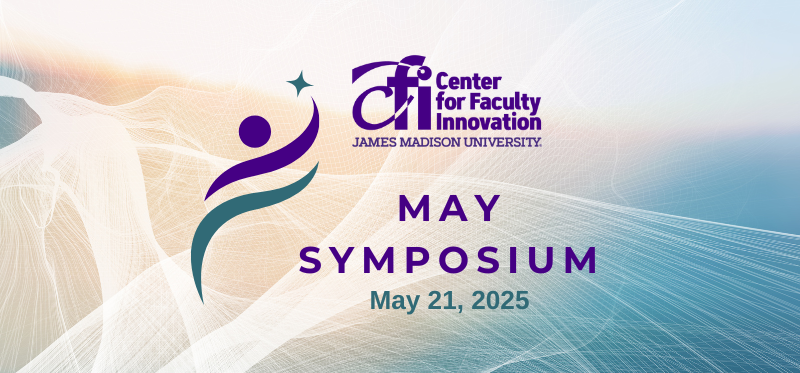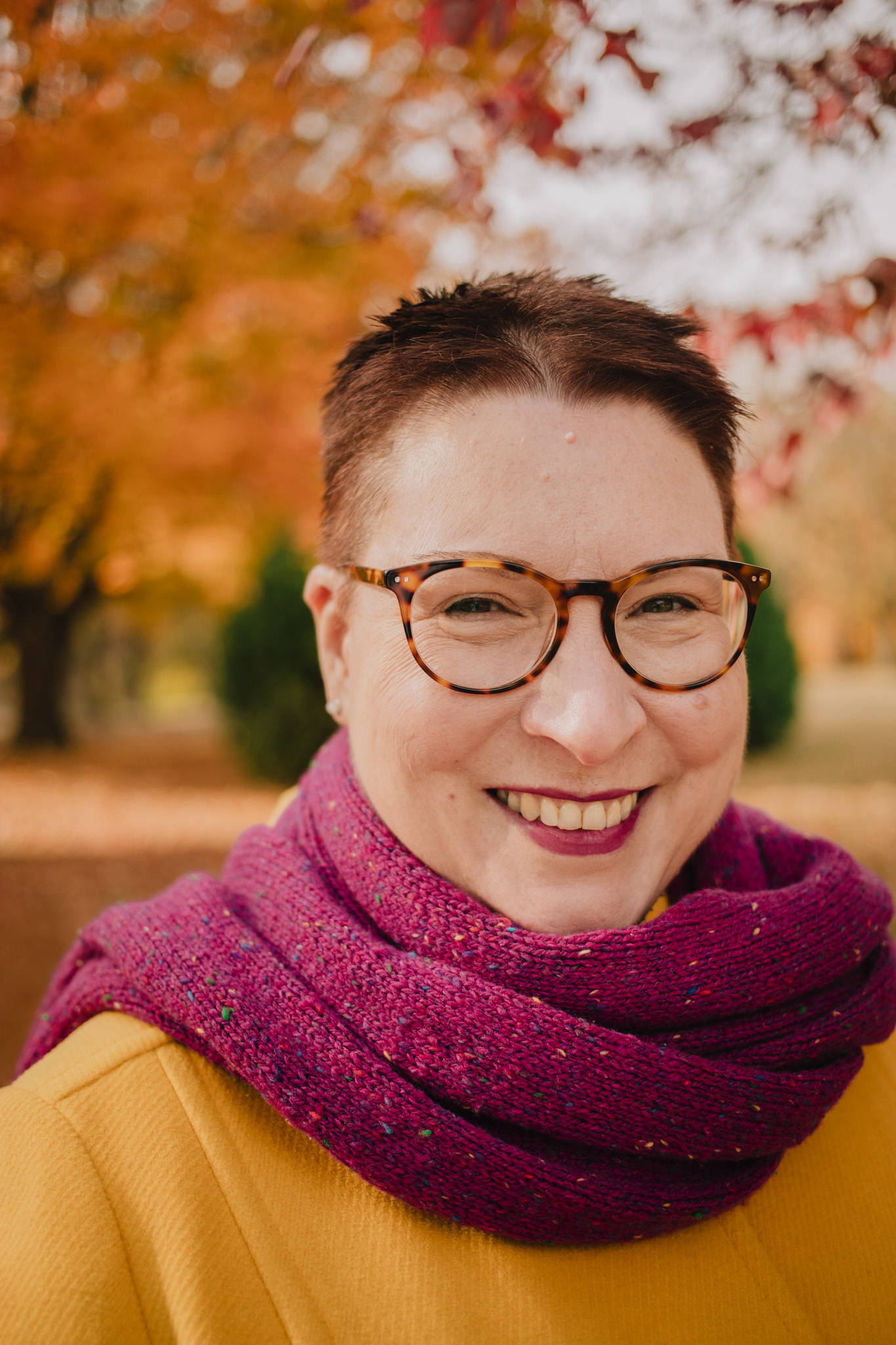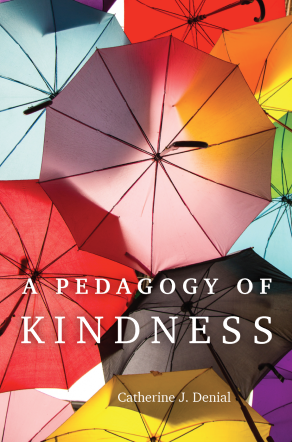
About CFI’s May Symposium. The JMU Center for Faculty Innovation offers May Symposium annually to support the ongoing development of faculty as teachers, scholars and leaders. May Symposium compiles a variety of roundtables, speakers and workshops on various topics such as course design, scholarship networks, inclusion, equity and mentoring.
This exciting collaborative effort provides full-time faculty, part-time faculty and academic unit leaders with opportunities to focus on teaching, scholarship, career planning, service and leadership.
Wednesday, May 21, 2025 (Festival)
Opening Remarks/Breakfast: 8:15 - 8:50 AM
- 8:10 AM: Doors open
- Festival Conference & Student Center, outside of the Grand Ballroom (Upper Level)
- 8:15 - 11 AM: Check-in
- Registration desk, outside of the Grand Ballroom
- Attendees and facilitators must check in
- Provided at check-in:
- Name tags
- Agenda handout (digital copy available through a QR code)
- Provides details on room locations of programs throughout the day
- Zoom links will be provided the day of programming to registered attendees for any online sessions and the afternoon virtual plenary
- Pre-registration is recommended by Monday, May 19 @ 12 PM
- Walk-ins are welcome, as space allows for individual sessions
- 8:15 - 8:50 AM: Breakfast
Notes
- Signage will be placed throughout Festival in both the Upper and Lower Levels
- Most programming will be held in the Upper Levels, in addition to the Highlands Room on the Lower Level
- Lactation rooms are available upon request (both the Upper and Lower Levels) and a family restroom is available (Upper Level). Please see the check-in staff for locations
- Details on your selected registration is provided upon your registration submission by a confirmation email
- Reminder emails are sent the day prior; however, you must view your original registration confirmation to view the specific sessions you are attending
Keynote Speaker - Conference Lunch/Afternoon Plenary
Keynote Speaker, Cate Denial
Catherine (Cate) Denial, Ph.D. is the Bright Distinguished Professor of American History and Director of the Bright Institute at Knox College in Galesburg, Illinois. A winner of the American Historical Association’s Eugene Asher Distinguished Teaching award, Cate has served as a member of the Educational Advisory Committee of the Digital Public Library of America, as a Distinguished Lecturer for the Organization of American Historians, and as a Learned Scholar for the National Historic Landmarks division of the National Park Service.
Cate currently sits on the board of Commonplace: A Journal of Early American Life. She has held an Andrew W. Mellon Foundation fellowship from the American Philosophical Society and is an elected member of the American Antiquarian Society.
From 2001 to 2011 Cate served as the Lead Historian for Bringing History Home, a professional development program for K-12 educators funded by $3m from the U.S. Department of Education. Cate’s new book, A Pedagogy of Kindness argues that higher education needs to get aggressively and determinedly kind. A Pedagogy of Kindness is about attending to justice, believing people, and believing in people. It’s a transformational discipline.

As creator and director of the Bright Institute at Knox College, Cate oversees a program which supports 13 faculty from liberal arts schools across the United States in their teaching and research for three years, while providing them with $10,500 in research funds and convening an annual summer seminar. From 2022 to 2023, she was PI on a $150,000 grant awarded to Knox College by the Mellon Foundation, bringing together thirty-six participants from across higher education in the United States to explore “Pedagogies, Communities, and Practices of Care in the Academy After COVID-19.”Cate is also a pedagogical consultant who works with individuals, departments, and institutions in the U.S., the U.K., Ireland, Canada, and Australia.

Keynote Speaker & Conference Lunch: 11:30 AM - 1:00 PM
What does it mean to practice a Pedagogy of Kindness?
This presentation will explore three tenets of compassionate teaching: justice, believing students, and believing in students. We'll reflect together on what kindness (and lack thereof) has meant to us within academia, and how we can - piece by piece - assemble a kind approach to pedagogy that meets the needs of our students and ourselves in a time of great change.
As a follow-up to the keynote presentation, Cate will present a workshop on, What impressions of ourselves do we communicate to our students through our syllabi?
In this hands-on workshop, you'll have the opportunity to analyze different syllabi that take different approaches to communication and design, and spend some time working on your own syllabus language in light of what you discover.
Afternoon Plenary: 2:30 - 4:00 PM
Roundtables/Workshops/Sessions
Academic Chutes and Ladders: Recognizing Our Nonlinear Pathways to and Through the Profession
We all take different paths to academia and experience different opportunities and obstacles along the way. How can our campus- and the profession writ large- not only make space for but also celebrate the wide range of lived experiences that inform our research, teaching, and service roles?
Building on research by Kerry Crawford (James Madison University) and Leah Windsor (University of Memphis), this session creates space for faculty and department heads to consider ways to make our departments, colleges, and campuses more supportive of all scholars.
Facilitated by: Kerry Crawford (CAL)
CFI Faculty Community of Care Interest Session
We invite you to join us to learn more about the upcoming CFI Faculty Community of Care and to share your thoughts and needs as we shape this community. Care is important to wellness and well-being, but how do we operationalize it?
Through this community, we want to create space for authentic conversations about our needs, explore scholarship and evidence-based strategies for care and well-being, and provide opportunities to build meaningful collaborations.
Now more than ever, we must prioritize extending care for ourselves and our communities—including our university community.
Facilitated by: Nicole Wilson & Elaine Kaye (JMU Libraries), Daisy Breneman (CAL & CFI)
Curricular Analytics: Exploring the Role of Curriculum Design in Student Success
Curricular Analytics is a process and tool offering insights about a program's curricular structure and how students actually progress through the curriculum. These insights can aid programs exploring curricular revision and review, particularly as curricula impact student success. Curricular Analytics offers rich data visualizations and insights about course sequencing, delays, curricular complexity, and student success outcomes.
This session will provide an overview of Curricular Analytics, share JMU specific examples, and facilitate a discussion on how Curricular Analytics could be explored and integrated at JMU.
Facilitated by: Paul Mabrey (SAS), Paula Maxwell (FAC), Rudy Molina (SAS), Michele White (SAS), Zhen Zhang (SAS)
Developing Students’ AI Literacy Through Engaging In-Class Activities
How can we help develop college students’ AI literacy, even when we ourselves are not experts in AI? In this short presentation, participants will be introduced to an AI literacy framework that articulates key AI competencies for educators and their students. They will then explore a set of classroom activities that support students’ AI literacy development within that framework.
Participants will have the opportunity to consider how they can engage their students in conversations and activities related to AI in ways relevant to their own teaching contexts and in alignment with their goals for student learning.
Facilitated by: Tim Ball (CAL & CFI)
Family and Staff Perceptions of Services in the Shenandoah Valley Migrant Education Program (SVMEP)
SVMEP supports families in helping children succeed in school. SVMEP provides an array of services including tutoring, interpretation, etc. The study aimed to compare the services rendered with those that participants perceived they used. Findings showed a discrepancy among program staff and participants in services rendered (e.g., referrals); however, there was consistency in 3 services - in-home tutoring, home visits, and free supplies.
Future program changes could look at how services provided are described to families and understanding areas of highest need among families in SVMEP.
Facilitated by: Suzanne Grossman (CHBS) & JoLynne Bartley (CHBS)
Fostering Inclusivity: Strategies for Faculty to Empower and Support International Students in Diverse Learning Environments
This session explores findings from focus groups conducted at James Madison University (JMU) with 20 international graduate students, shedding light on their experiences, challenges, and the unique support needs they face. While students expressed appreciation for JMU’s welcoming environment, faculty, staff, and resources like the Center for Global Engagement (CGE) and International Student & Scholar Services (ISSS), they also identified significant challenges. Immigration restrictions limit their job prospects, highlighting areas where faculty can offer targeted support.
Attendees will gain insights into these experiences and actionable strategies for fostering an inclusive and empowering learning environment for international students.
Facilitated by: Diana Calarreta (CAL & CGE)
From Proposal to Practice: Crafting Effective Data Management Plans
This workshop will guide researchers through the essentials of creating a strong Data Management Plan (DMP), including funder requirements, best practices, and tools like the DMPTool. Participants will explore what makes a DMP effective, how to align with grant agency expectations, and strategies for ensuring long-term data sustainability.
Whether you’re writing a DMP for the first time or refining an existing one, this session will provide practical guidance and hands-on experience.
Facilitated by: Samantha Harmon (JMU Libraries)
How an Inclusive Past Creates an Inclusive Future: The Role of JMU's Campus History Committee, 2016 to present.
In 2016, senior leaders charged the Campus History Committee with researching this institution's fascinating past and developing ways to ensure that the stories being told to our various constituents (including students, parents, alumni, the community, etc.) are inclusive, accurate, and relevant. Come find out about our various projects (building names, exhibits, walking tours, speakers, oral history) and learn how this work fosters inclusion and belonging in the present.
Participants will also be introduced to a self-guided walking tour of sites on the Quad they can take on their phones using the JMU map.
Facilitated by: Tiffany Cole (JMU Libraries), Carole Nash (CISE), Meg Mulrooney (CAL)
Ideas with Impact: Extending the Reach of Academic Research
This session explores how faculty can extend the reach of their research beyond academia to create real-world impact. Learn about pathways beyond publication—such as licensing and spinouts—that help translate discoveries into powerful innovations.
Discover the resources available to support you in bringing your work beyond the university and into the world.
Facilitated by: Leigh Evans (REDI)
Integrating Visual Communication and Psychology to Advocate for the Empowerment of Underrepresented Voices: An Interdisciplinary Approach
This session explores how visual communication, data science, and psychology empower underrepresented voices. Participants will learn how critical design thinking and visual rhetoric enhance principles of empowerment and identity. Presentations will show how visual strategies challenge stereotypes and promote empowerment. A co-taught class plan blends both disciplines to create an inclusive learning environment.
The session offers theories and practical tools for using an interdisciplinary approach to drive social change and foster empowerment through visual storytelling and psychological insights.
Facilitated by: Feixue Mei (CAL) Yanbin Li (CHBS)
Mapping the Self: Identity, Inclusivity, and Alternative Scholarship
'Mapping the Self' is an interactive workshop designed to help participants reflect on their identities and scholarly practices through an arts-based approach. Using movement, storytelling, and creative exercises, participants will explore the intersections they navigate, reconsider citation justice, and reframe the questions they ask in their research.
The workshop invites participants to reflect on and embrace alternative forms of scholarship within their academic practices, encouraging new ways of thinking that can shift the landscape of academia.
Facilitated by: Javier Padilla (CVPA & CFI)
Reimagining your Course with Community-Engaged & Work-Based Learning
Faculty increasingly seek ways to provide students with real-world learning experiences that connect coursework to professional and community contexts while enhancing student outcomes and preparing them for impactful careers.
This session will explore strategies for re-imagining courses to incorporate Community-Engaged Learning (CEL) in meaningful, scalable ways with support from the Community Engagement and Volunteer Center. In addition, representatives from the Work-Based Learning Experiences (WBLE) Task Force and University Career Center will provide an update on ongoing efforts to expand WBLE opportunities, such as internships, clinical placements, practicums, and undergraduate research.
Faculty will gain insight into how CEL and WBLE align, how they differ, and how they can complement each other to enrich student learning.
Facilitated by: Jenna Piersol (CEVC) & Libby Westley (UCC)
Rest, Resilience, and the Black Motherscholar: Breaking Free from the Grind Culture
A motherscholar is a mother in the role of faculty, staff, or student in Higher Education. Motherhood is often seen as empowering, but the post-birth transition is rarely explored, leaving Black mothers to manage work, family, and self-care amid intense societal pressures. Grind culture, rooted in capitalist and white supremacist systems, disproportionately harms Black women, contributing to burnout and health disparities. Black mothers navigate these challenges, emphasizing rest and self-care as essential tools for resistance and healing.
Drawing on scholars like Dr. Tricia Hersey, this session highlights the importance of social support, institutional policy change, and how reclaiming rest will offer participants strategies to resist grind culture, reflect on its impact, and develop sustainable practices to prioritize their well-being.
Facilitated by: DaNae Peterson (CAL)
Small Teaching Idea Exchange
We want to provide an opportunity for faculty to come together to share small teaching practices and build a community around teaching. For this session, please bring an example of a “small teaching idea,” something that can be quickly shared (under 3 minutes) and has made your teaching easier, simpler, more enjoyable, or more effective in enhancing student learning.
This might include simple-to-implement techniques, syllabus statements, quotes about teaching, effective questions, learning activities, assignments, or other ideas you’ve tried that have positively impacted you and your students, or even ones you want to try. We want this to be a fun and non-intimidating opportunity to connect; so, no pressure—we’re not asking for “excellent,” “best,” or super broad or revolutionary teaching strategies, and no one will offer critiques.
The aim is that in offering up one small teaching idea, you’ll leave with plenty more from our shared community.
Facilitated by: Lori Gano-Overway (CHBS & CFI) & Daisy Brenemen (CAL & CFI)
Some Lessons Learned from the Open Educational Resource Classroom
Open Source textbooks and other materials can help make college more affordable, particularly for traditionally underserved populations. However, not all open sources are created equal, and Open Source materials, if not used wisely, may exacerbate societal inequities that already affect higher education.
This presentation offers guidelines for using Open Source materials in the classroom in a way that helps, rather than hinders, the student learning experience.
Facilitated by: Peter Eubanks (CAL)
Steps to Successful Grant Funding
Are you interested in external funding for your research, scholarship, or creative work, but feel mystified by the grant process? Confused about how federal changes are impacting the grant landscape?
Come join the Office of Research Development as we explore the funding landscape and talk through the grant application process, emphasizing timely tips & JMU resources that help along the way.
Facilitated by: Lauren Pearce, Brent Arehart, Naomi Bates (REDI)
The Fair Use/AI quagmire - Implications for Authors' Rights and Scholarship
Earlier this year, in Thomson Reuters v. Ross Intelligence, the District Court in Delaware found that using copyrighted material to train an AI model did not represent fair use of that content. Amid many (many) ongoing lawsuits of that type, this was an interesting outcome which represents a victory, of sorts - for now - for content creators. At the heart of this is a tension between content creators who naturally worry that their copyrights are being used to train AI without attribution or consent, and AI providers who seek to feed their AI machines.
What does this mean for us, as scholars, both in terms of our own scholarly works, and for those of us working with or developing AI?
Facilitated by: Howard S. Carrier (JMU Libraries)
Transforming Imposter Syndrome to Build an Inclusive Future
Do you experience Imposter Syndrome? If you worry about not being enough or being exposed as a fraud, you’re in good company: an estimated 70% of people experience impostor syndrome. This interactive session seeks to reframe “syndrome” as “phenomenon” in recognition of the social factors that perpetuate it, particularly for marginalized populations.
This session invites deeper understanding through mutual sharing of experiences, stories, and strategies. Together, we seek to transform the impostor phenomenon to build an inclusive future where all members of a community belong and matter.
Facilitated by: Karla Kale (Counseling Center)
Where to Store & Share: Navigating Data Repository Options
Choosing the right repository for your research data can impact visibility, compliance, and long-term accessibility. This workshop will introduce participants to different types of data repositories, from institutional to generalist and domain-specific options. We will discuss key considerations for selecting a repository, including funder and journal requirements, FAIR data principles, and long-term access strategies. Participants will leave with a clear understanding of how to select the best repository for their data and leverage repository features to enhance research impact.
Facilitated by: Samantha Harmon (JMU Libraries)
Writing Studio: Your Annual Report
This session invites faculty to work on their annual reports (FAR, FPS, whatever it is called in your unit) throughout the day. You can take a break to attend another May Symposium session. Career planning consultations are available.
Facilitated by: Andreas Broscheid (CFI & CAL)

